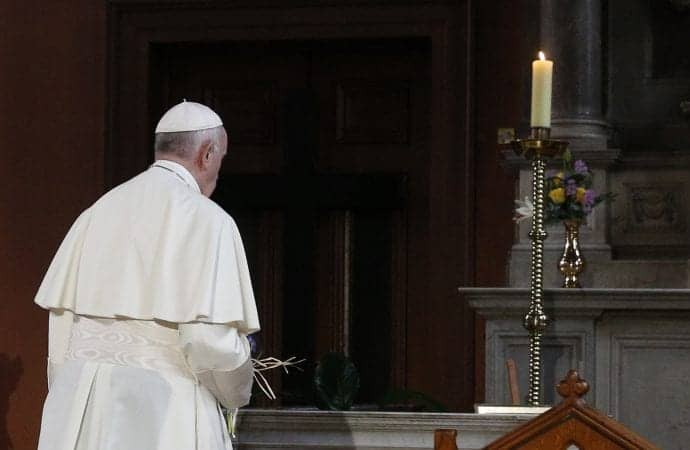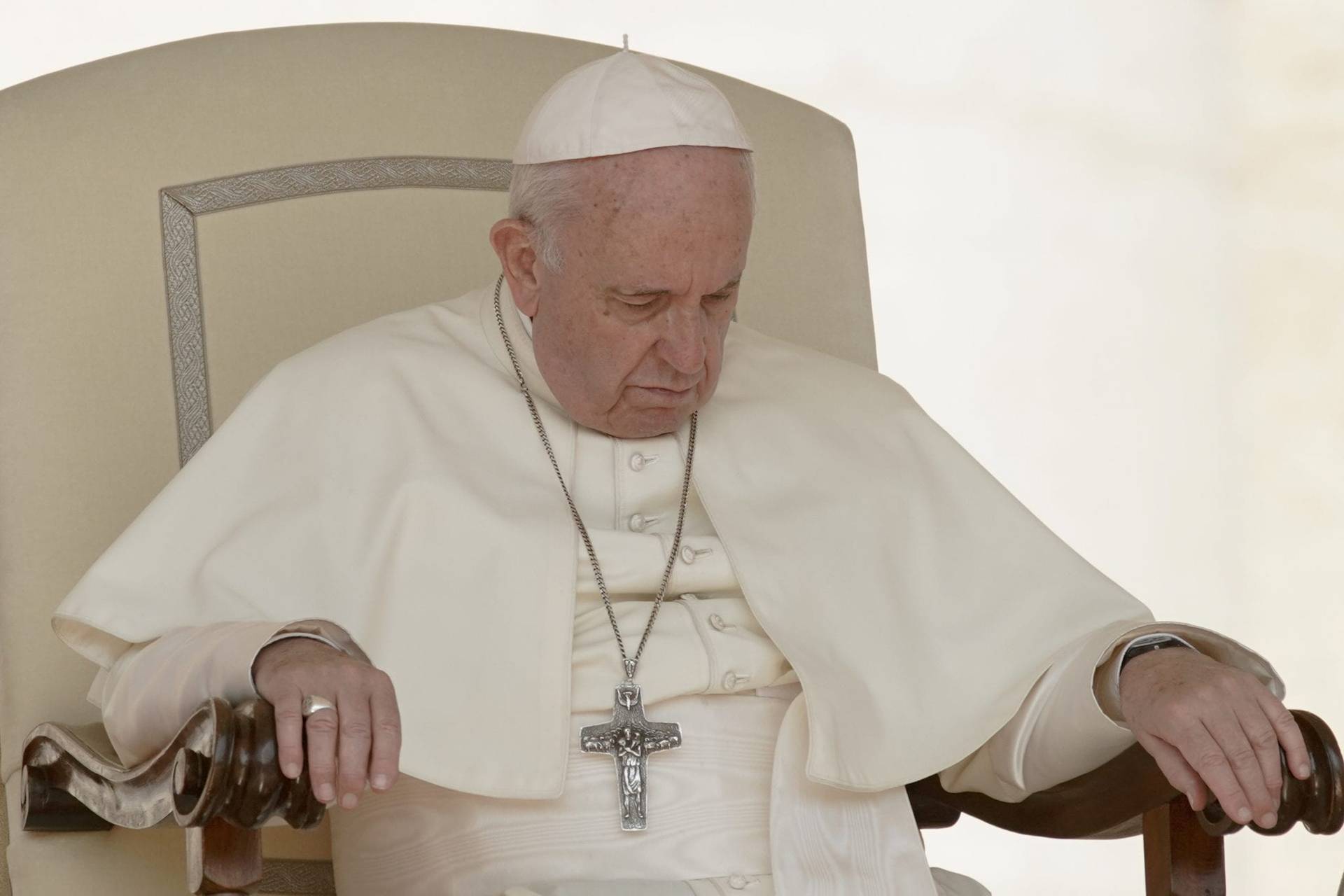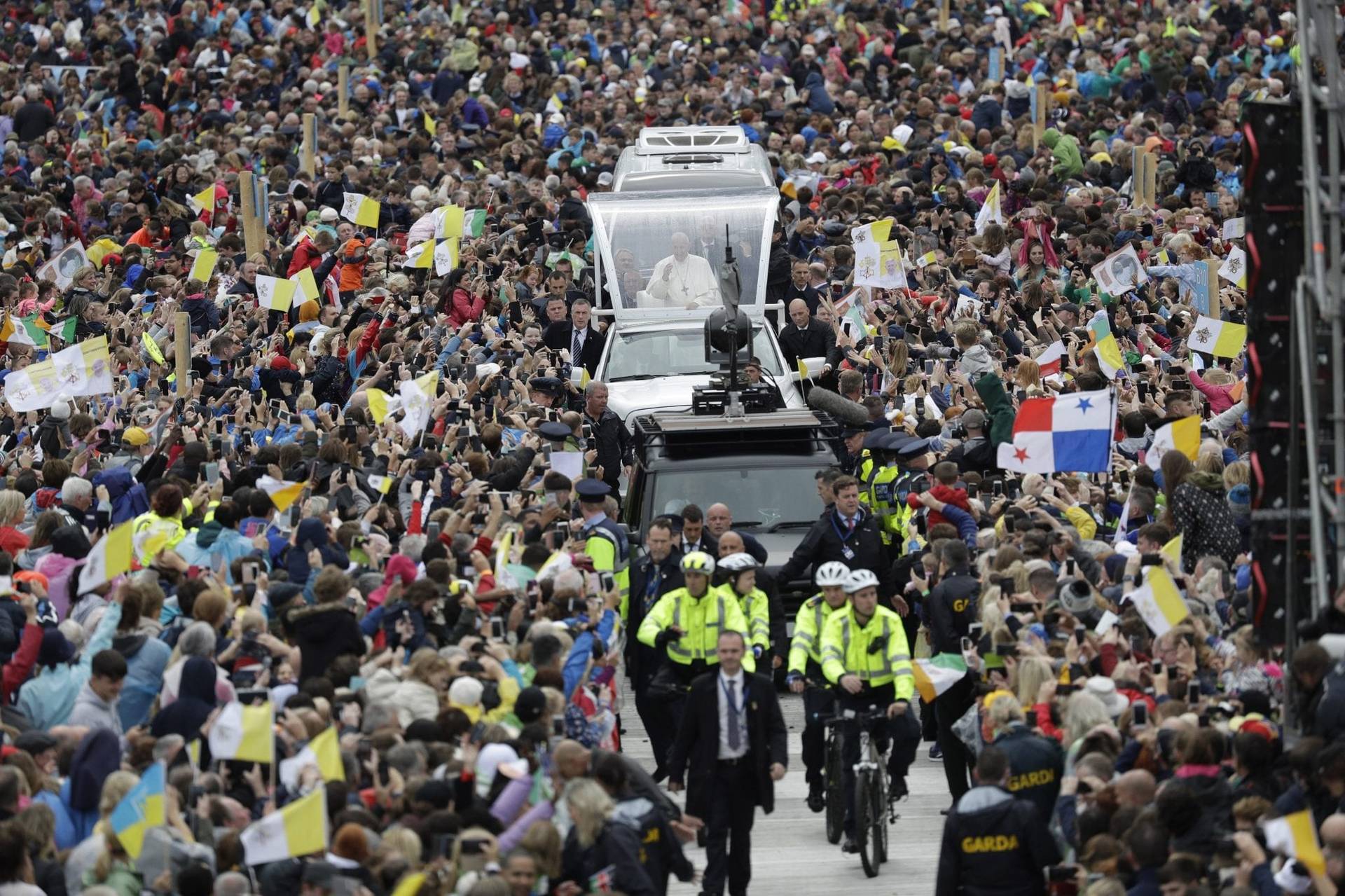DUBLIN – Wednesday morning brought the opening of the World Meeting of Families, a Vatican-sponsored gathering that’s expected to bring together roughly 37,000 people from 116 countries over the next three days to the arenas and meeting halls of the Royal Dublin Society.
The following are highlights from the opening morning.
A carnival atmosphere
The opening morning of the World Meeting of Families in Dublin felt at times more like a carnival or a fairground than a formal conference where serious matters such as family, sex, divorce, and marriage were to be discussed.
In comparison to the last gathering in 2015, which was held at Philadelphia’s much more formal (and to some, sterile) convention hall, this year’s event is taking place at the Royal Dublin Society complex, which at the present moment is surrounded by food trucks selling coffee, pizza, brats, and beer — a nod to the Catholic truism “Wherever the Catholic sun doth shine, There’s always laughter and good red wine” — but at times looks more like a street scene from Portland or Austin.
Pilgrims arrived, some in custom World Meeting of Families-inspired attire, others draped in Holy See flags worn as capes, and plenty of collars and habits blended in between.
Schönborn says family is about human nature
During an opening session of the World Meeting of Families on Wednesday, Cardinal Christoph Schönborn of Vienna, Austria, told a crowd of several hundred people that Amoris Laetitia, Pope Francis’s 2106 document on the family, has “gained much importance” in the Catholic Church by illustrating that marriage and the family are “profoundly rooted in the Judeo-Christian tradition.”
Arguing that “children want their parents to be faithful and to remain together,” Schönborn told the crowd that traditional family life corresponds to a basic inclination of human nature.
The Austrian cardinal led an interfaith panel that featured Archbishop Michael Jackson of Dublin, of the Church of Ireland (Anglican) (who apologized for being the “prosaic rather than musical Michael Jackson); Archpriest Mikhail Nasonov of the Russian Orthodox Church, and Rabbi Zalman S. Lent of the Lubavitcher community in Dublin.
Lent said that in Judaism, “the most sacred place is not the temple, it’s the family home, because that’s where our traditions are taught and passed down through the generations.”
In a “cruel and unsocial media world,” Lent said, children today face “challenges unprecedented in the history of humanity,” principally a vast array of disturbing material online. “We used to lead our children across the street to avoid unpleasant things, but today we give it to them giftwrapped as a present,” he said.
A reminder of persecuted Christians
Throughout the structure where sessions of the World Meeting of Families are being held, there are several side events, including activities for children and for teens and small-scale exhibits. One is organized by Aid to the Church in Need, a papal charity focused on helping Christians where they are persecuted.
Their exhibit includes a photograph of a Church in Qaraqosh in the Nineveh Plains in northern Iraq, which was destroyed by ISIS. Several objects used for dispensing the sacraments and which were recovered after the area was freed in late 2017 are displayed, including a chalice that had been used by Islamic terrorists for shooting practice.
“The exhibit is meant to be a testament to the life and faith of people across the world,” Michael Kinsella of ACN Ireland told Crux. “We want to raise awareness to the fact that for the majority of time, for the majority of Christians, they’re still being thrown to the lions in the Coliseum, they’re still living in the Catacombs.”
With the exhibit, he said, they want to make sure that those who pass through it become aware of the fact that the Church in the West, and the Church in the Middle East, Africa or Asia is the same Church. When those in one region suffer, those in the others suffer too, and when the Church in one region affirms its faith, “we should be affirmed.”
“Part of the reason for this exhibit is to make sure that the Irish faithful, who are going through a spiritual catharsis at the moment, and not in a good way, are aware of what people endure to even avow the name of Christ, their faith in him: even just saying his name can lead to a death sentence,” Kinsella said.
Couple says rigid gender roles don’t help
Three families coming from the United States, France and Spain presented their personal experiences on family life and marriage during a panel titled “The Logic of Complementarity: Why Mothers and Fathers Matter in Amoris Laetitia.”
“Our differences as men and women are important and are a gift from God,” said Claire and John Grabowsky, from the committee on Laity, Marriage, Family and Youth of the U.S. bishops’ conference. “It takes two to raise and form children well.”
Rigid assumption of gender roles are “ultimately unhelpful,” they added, quoting Francis’s apostolic exhortation on marriage Amoris Laetitia encouraging a certain flexibility of roles and responsibility.
According to Marie Gabrielle and Manuelle Mènager from France, “today there is an urgency to share the Gospel for the heart of the family.” The couple expressed concern for a culture that undermines complementarity between men and women, which leads to “competition and the idea that we don’t need each other anymore.”
Rival event accuses World Meeting of promoting ‘homosexual lifestyle’
The Conference of Catholic Families, a rival event to the World Meeting of Families, has said they don’t want to create division, but they want to “present the truth in a positive way.” The big issue, in all the talks this morning, has been homosexuality and the accusation that World Meeting organizers are endorsing a homosexual lifestyle.
Anthony Murphy, president and founder of Lumen Fidei institute, said the pullout of Cardinal Sean O’Malley of Boston and Cardinal Donald Wuerl of Washington from the World Meeting is a “sign from heaven,” and said the pope’s letter on abuse fell short because it didn’t call out the homosexual culture.
He said the Church is “the safest place for our children,” but called seminaries “cesspits for homosexuality.”
Speakers largely said homosexuality is the underlying cause for the sexual abuse crisis. John Lacken, secretary of Lumen Fidei institute, said gay Russian communists infiltrated seminaries with the goal of destroying the Church from the inside, and said American Jesuit Father James Martin promotes an ideology that “represents a threat to our children’s well-being, and indeed their very salvation.”
The basic conclusion was that only sacramental marriage, as outlined in the document Casti Connubii from 1930, will save the family and domestic society as a whole.















